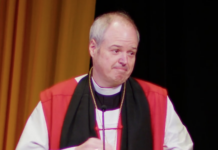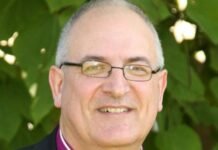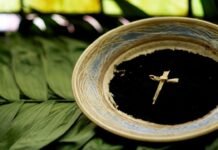Midnight Mass – Christmas Eve
24th December 2019
Cathedral Church of St George the Martyr
The Most Revd Dr Thabo Makgoba
Archbishop of Cape Town
Isaiah 62:6-12, Psalm 97, Titus 3:4-7, Luke 2:(1-7), 8-20 or John 1:1-14
May I speak in the name of God who is Creator, Redeemer and Sustainer. Amen.
It’s been a difficult year for South Africans, and two recent encounters have highlighted this for me. First, when we marked the retirement last month of the Diocese’s Vicar-General, Keith de Vos, some of his parishioners brought home to me how many people, instead of seeing the “new dawn” being proclaimed for our country, are instead sensing that, actually, a dark cloud is hanging over us. And that was even before the Eskom power cuts reached Stage Six.
Second, as our family shared a meal around the table in Makgobaskloof last week, my daughter – who is a university student – to my surprise and I admit my chagrin, challenged me by asking, “Daddy, what kind of world, what kind of South Africa, am I going to grow up in?” I was at a loss for words to respond – not such a good condition for an Archbishop. Unpacking her concerns, she explained that she felt on the edge of a precipice, distressed by the lack of trust in the world and by the pressures on her and her peers, hopeful at the end of the Zuma era but upset by the pervasive greed in South Africa, jubilant at the success of the Springboks but despairing at the continuing lack of equality of opportunity for people of her age.
These exchanges shook me. Here we are on the cusp of a new decade and the worries being expressed represent the questions many South Africans are asking. So I forced myself to focus on Christmas, on the readings for tonight, and on the carols we sing at this time of year.
Beginning with that beautiful passage from Isaiah: it tells us that until Jerusalem is established here on earth, all of us ought to be sentinels (in the older translations, they use the words “biblical watchmen”); that we ought to be citizens of God who have a sense of duty not only to God, but who also have a responsibility for the public welfare. And the writer of the passage assures us that even if things are tough, God will remove the shackles that bind us, that salvation is assured and that God will ensure that Jerusalem will not be forsaken. Then the Psalmist talks about a God who reigns, who is the one who designs the whole world, the whole cosmos. I found this image of God as a designer very powerful – a designer of the world, the values of whose reign are values of justice and righteousness.
Finally, the reading from John’s Gospel set for tonight has a beautiful way of describing the Incarnation – the coming of God into the world. It portrays the Incarnation as a form of light. In an interesting twist, it says the Incarnation is light shining into the darkness. Note that it doesn’t say darkness will go. Darkness survives, it continues to exist, but where the light shines, where Jesus comes, it dispels the darkness. The concentration is no longer on darkness, but instead it’s on God’s people who need to be saved. And although God is particular to Jerusalem, and in the psalms God is particular to the Israelites, the Incarnation, the light, says that our God is also universal. God is a god of all, not just for Christians, and the Incarnation calls us to witness to God in almost everything; to bring God’s light to where there is darkness, and to witness to the light wherever we are.
Turning to the carols, I was drawn again to that carol originating in mid-19th century America called “It Came upon the Midnight Clear”. The composer, Edmund Sears, wrote it as he was wrestling with the harsh paradox of celebrating the birth of the Prince of Peace at a time when the United States had been at war with Mexico and as it was still gripped by the demonic force of slavery. Sears in his carol recognises that the slaves of that time, as is still true today, live “beneath life’s crushing load”, that they are those “whose forms are bending low, Who toil along the climbing way with painful steps and slow.”
At the time he wrote, it was night for those slaves in America. Tonight, as we enter a new decade, it is night for so many in our land, for many around the world, for those who hunger and thirst for food and water, and curl up at night hungry. It is night. It is night for those who hunger and thirst for some kind of peace in places of deadly conflict, who hunger and thirst for justice in places where human rights are either ignored or abused. It is night for those who have been the victims of violence and so horribly of gender-based violence. It is night for the 26 million refugees and 41 million people displaced from their homes in their own countries who face untold dangers. It is night for all of them.
But Sears’s carol recognised that amidst that cauldron of human wrong in America, the hovering angels and their celestial songs were in fact words of deep challenge to the status quo. They were intimations of liberation and signs of a new historical epoch, and thus words of hope. He encourages those bowed down: “Look now! For glad and golden hours, Come swiftly on the wing.”
Sears’s hymn, and the other Gospel reading from Luke tonight, tell us that we don’t have to live beneath life’s crushing load. We don’t have to accept the low opinion others might have of us. We don’t have to internalise negative self-images. Listen to our hearts, hear what God is saying, what heaven is ringing out tonight. We can get up. We can walk away from the marginalisation others impose on us. We don’t have to accept other people’s darkness. We can do what the shepherds did on that original Christmas night. They were people without any security, with very meagre belongings, no permanent abode and lacking in any social status, yet they summoned up their courage and did what Christmas always challenges us to do: to leave the familiar, to leave our comfort zones and be vulnerable enough to journey to the margins, to the places of no regard and to discern there the new thing that God is doing that is of such great joy. God bids us find what that new-born Baby represents – a new humanity, our full worth, our incomparable dignity that no one can take from us.
Christmas is always essentially about something new, something unthought of, unheard of, that comes to offer a new dawn. As we enter this new decade, the words “Twenty-twenty” have such a landmark ring to them, marking the beginning of a new decade which invites us to think bigger thoughts, to dream bigger dreams and to scale up our ambitions for what we can achieve, for ourselves, our communities and our society in the next 10 years.
What is for certain is that 2020 will not be short of drama. Many see it as a year of judgment. Certainly in the U.S., the world is in for a roller-coaster year as Americans go back to the polls to pass judgement on President Trump. Brexit in the UK will be resolved, one way or the other – or will it? Whatever happens, it is likely to leave that country divided, damaged and diminished.
Here in South Africa, we hope it is “the year of the orange jump-suit”, a year of reckoning for those whose greed has driven the country to the brink of disaster. On this night, of all nights, I don’t want to appear vindictive. Nor do I want to join the ranks of those who would put undue pressure on prosecutors to rush their work. Shamila Batohi, Hermione Cronje and their teams at the National Prosecuting Authority need to be given the space to do their jobs properly and to prepare watertight cases which secure convictions. Botched prosecutions and widespread acquittals would be a disaster, sending the wrong signals to the corrupt and plunging the country into despair. But there must be consequences for corruption, both for those in the private sector who facilitate it and those in the public sector who take advantage of it. The justice, the peace, the reconciliation and the abundant life which a flourishing democracy promises will be achieved only if those who threaten to subvert it are held accountable. So I pray that our hope is not misplaced.
The leaders of our government have had nearly two years to get their act together, rebuild national and international trust and begin to keep the many promises they’ve made to us. Much as I respect our President, and have said he can’t bring about change with a magic wand, it remains true that he, his Cabinet and Parliament are excellent talkers, good enough to talk a dog down from a meat truck. But when it comes to improving service delivery, delivering basic healthcare and bringing our education system up to global standards to ensure equality of opportunity for all our children, their words are empty and actionless. As Freddy Mercury of Queen once sang:
All we hear is radio ga ga
Radio goo goo
Radio ga ga
All we hear is radio ga ga
Radio blah blah
Radio, what’s new?
We need to believe we can do better. We need to believe we must do better. We need to believe we will do better. And let us start by examining ourselves: instead of complaining about what the government hasn’t done for us, ask what it is that you can do for your neighbour.
Looking ahead to the next decade, I hope we will abandon old shibboleths and begin to take economically rational decisions about our country. Not only in South Africa, but internationally, the last decade has shown that neither unbridled capitalism and globalisation, nor a centralised command economy will produce the growth and the jobs we need. Across the world, the economic ordering of society and the question of how we develop our material resources is central to the crises that afflict us. In South Africa I have said that the old economic order must go. But inequality is not confined to South Africa, or Brazil, or the United States – it affects us all – and I am a strong supporter of an initiative by the international faith community to advocate a new form of global governance and a new economic framework, one which would transform the market economy from a self-serving mechanism for elites to one which is less exploitative and both serves our environment and distributes resources and income more equitably.
For our Church, 2020 will also be an historic year. For the first time in more than decade, archbishops and bishops from across the world will gather at the 2020 Lambeth Conference in Canterbury to discuss the future of our Church and its role in global and local society. For the past four years, I have chaired the Lambeth Design Group as we have worked collaboratively to build a framework around what we call “Pillars of Relevance”, which reflect the key issues facing our global Church in the next decade.
These pillars challenge us in South Africa to ask a number of questions: What do young people really want out of their church experience? How can the Church motivate and inspire our leaders to focus on creating a South Africa where there is a genuine equality of opportunity? How can we draw families, neighbours, communities and our country into Courageous Conversations around our family dinner tables, boardroom tables and parliamentary cafeteria tables to become a country of active listeners, openly debating differences with the intention of finding bridges of common agreement? And one of the most important questions facing our children and grandchildren today: what leadership role can the Church play in shaping the future in a climate changing world?
Lastly, how do we in the Church restore trust in our institutions, our leaders and ourselves? We are living through an era of historic distrust, in which we are challenged to examine how we can rise up above the clamour of hate and intolerance and address the atmosphere in which people don’t want to listen to opposing views or consider ideas different from their own. It is our responsibility to to look both inside and outside the stained glass windows of our churches and ask: if we don’t work to re-establish trust in society, who will? And if we don’t do it now, then when will it happen?
Despite our challenges, as we close out one decade and open the door to another, I am hopeful. Not because, to quote the eminent South African feminist theologian, Denise Ackermann, I have a “blithe sense that all will end well (or alles sal regkom) because human progress is guaranteed.” No, I am hopeful because to hope is to be determined to name our problems and highlight our differences, precisely in order to mobilise people to overcome them. As Denise adds: “To live out my hope is to try to make that which I hope for come about – sooner rather than later.”
We believe and trust in a God of hope. So let us reflect that in our personal lives, in our Church’s life and in the life of the country as we enter the twenty-twenties.
God bless you, your family and God bless South Africa. God loves you. And so do I.
Amen




“May I speak in the name of God who is Creator, Redeemer and Sustainer….. It’s been a difficult year for South Africans, and two recent encounters have highlighted this for me. First, when we marked the retirement last month of the Diocese’s Vicar-General”
One wonders what function the word “May” has in the first sentence. Do you or do you not speak in the “name of God”? We pray “in the name” of Jesus, meaning that we approach God through the righteousness of Jesus. But to speak “in the name” of God seems dangerously presumptuous.
Secondly, one notes that, after that grand-sounding opening, the message immediately degenerates into the usual media-speak. “God” has suddenly evaporated and been replaced by a tedious lecture delivered with a lot more pomposity than it deserves.
If an ecclesiastical functionary, who is described as “most reverend” (i.e. presumably most fit to be revered or reverenced) cannot do better than this, the future does not look good for Anglicanism. In the rest of the speech he basically goes on to say “we” have to fix a whole raft of social problems, and God ‘s role is to keep up our morale by giving us “hope” (whatever that means).
‘Creator, Redeemer and Sustainer’ is the feminist emasculated way of referring to ‘Father, Son, and Holy Spirit’. So no surprise that the message is one of progressive drivel – the speaker telegraphed his theological position from the very outset.